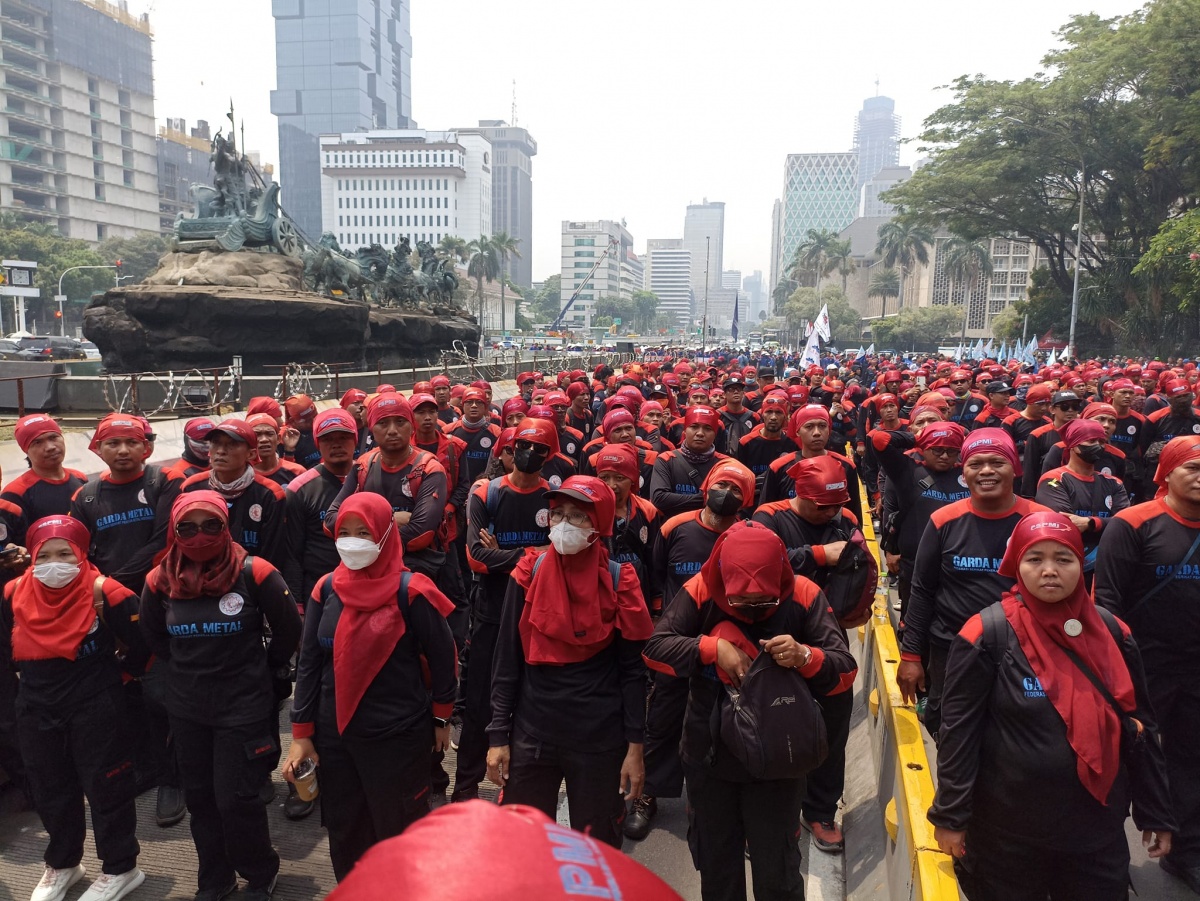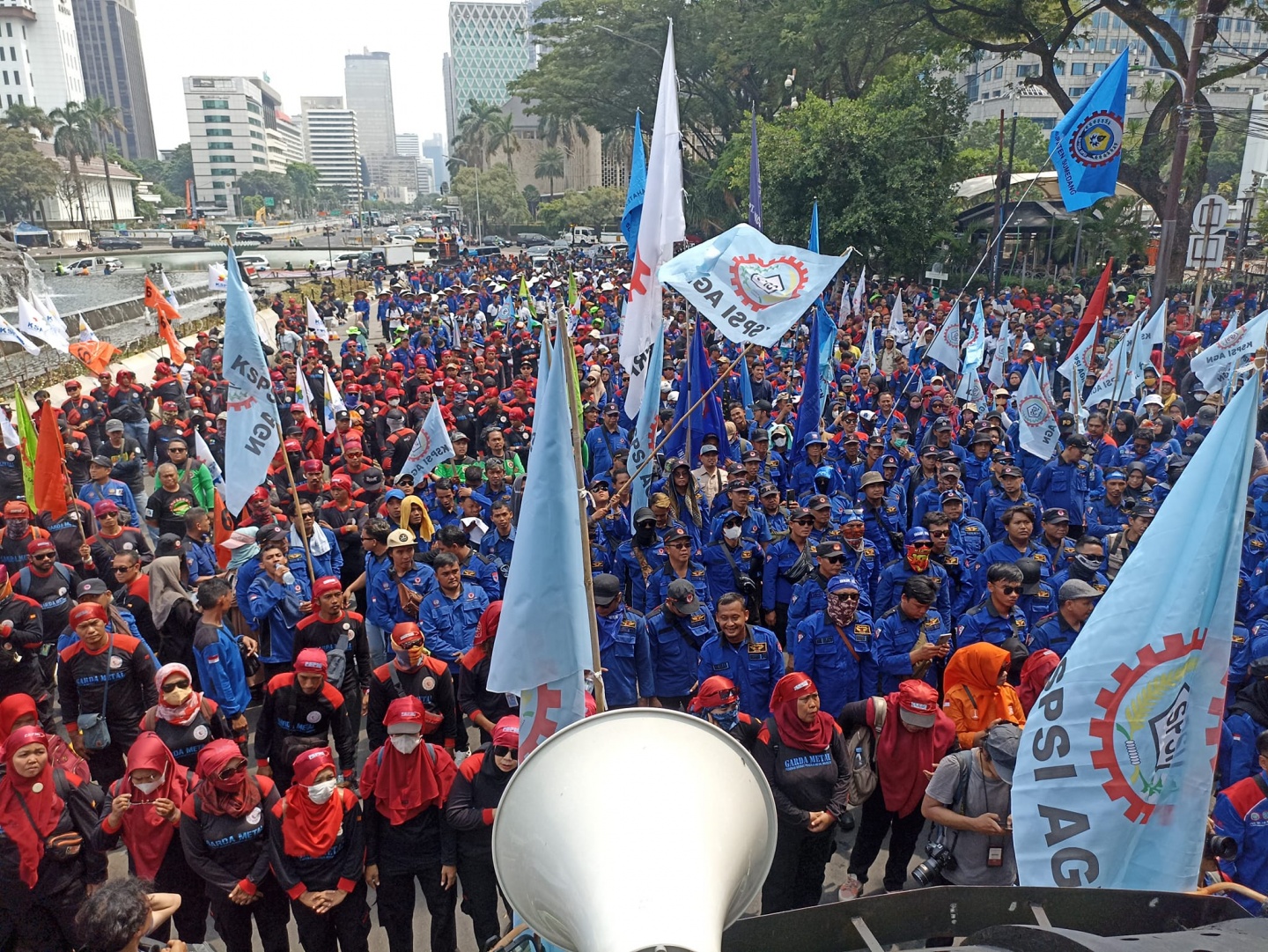1 November, 2024In a union victory, Indonesia’s constitutional court has granted 21 out of 71 petition points filed by unions concerning the controversial Job Creation Law and has ordered the government to enact a new law within two years.
The Job Creation Law, commonly known as the Omnibus law, was enacted by the then President Joko Widodo in 2020. Supported by IndustriALL Global Union, Indonesian unions have fought back against the law that degrades working conditions.
After a judicial review filed by the Labour party, the Indonesian Trade Union Confederation (KSPI), the Confederation of All Indonesian Workers' Union (KSPSI-AGN), the Confederation of United Indonesian Workers (KPBI) and the Federation of Indonesian Metal Workers' Union (FSPMI), the constitutional court ruled on 31 October that workers must be given priority while considering employment of foreign workers, that fixed-term employment contract shall not exceed five years, and there should be two rest days per week, instead of one.
For the industrial relations system, the highest court said deliberation for consensus is required in bipartite negotiations, termination of employment can only be done through an order from an industrial relations institution, which must refer to the law on industrial relations dispute settlement.
About 500 trade unionists and labour party activists gathered in front of the constitutional court and waited for the decision. The Labour party president Said Iqbal declared the court decision a victory for Indonesian workers, urging President Prabowo Subianto to respect the decision and not to interpret the otherwise.
"The constitutional court's decision on the Omnibus Law marks a monumental victory of FSPMI and other unions in the ongoing struggle for workers’ rights. This ruling not only underscores the importance of transparent governance but also reaffirms the vital role of worker advocacy in shaping laws that protect and empower the workforce. We want to extend our heartfelt gratitude for the support provided by IndustriALL and all unions in the Asia Pacific region,"
says IndustriALL Asia Pacific Executive Committee co-chair Prihanani Boenadi.
The landmark decision also stipulated the minimum wage system requirements at length, including among other things that income must fulfil the reasonable needs of workers and their families including food, housing, education, health and pension, and that employers should not only take a company's affordability and productivity into consideration in setting wage structure and scale, but they must also consider workers' category, position, length of service, education and competence.
“This has been a longstanding fight where IndustriALL has engaged heavily together with our affiliates. The victory is important not only for Indonesian workers, but it should have implications on similar government attempts in the region. We will continue to fight against attempts to erode workers’ rights but right now we congratulate our Indonesian affiliates and the Indonesian workforce,”
says IndustriALL general secretary Atle Høie.





